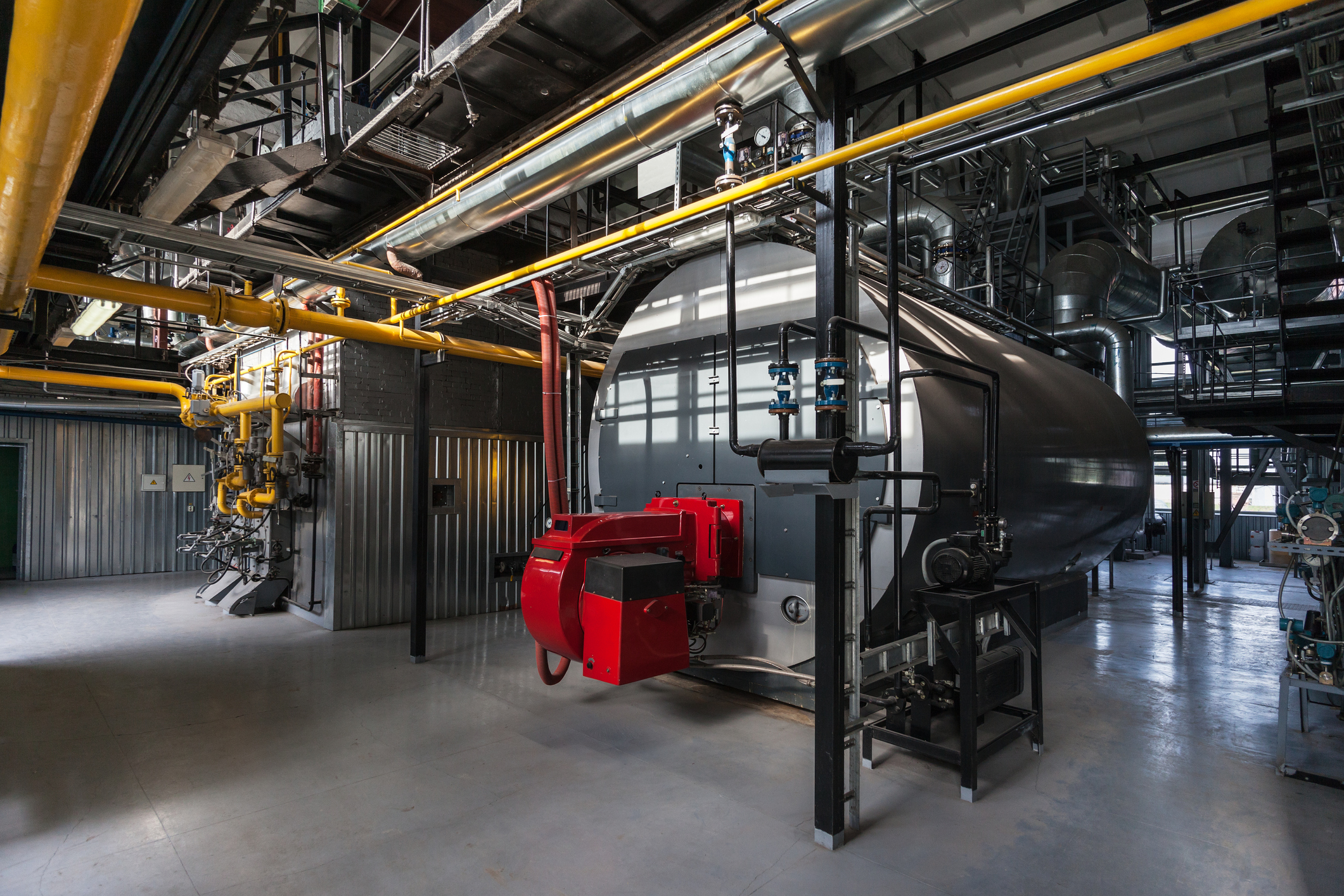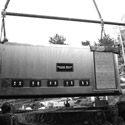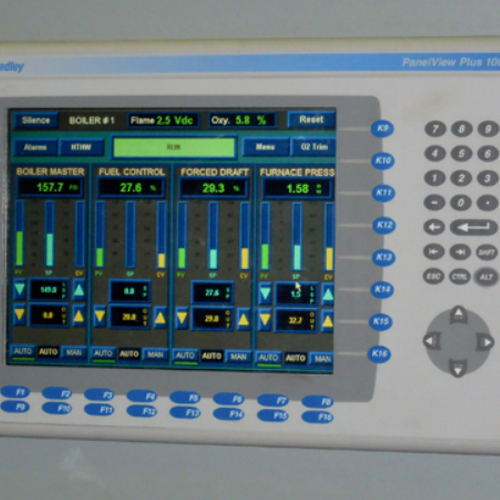| Boiler Brands | English Boiler and Tube |
| Boiler Types |
A-Type Industrial Water Tube CP Type Solid Fuel |
| Industries Served |
Government Universities |
| Boiler Fuel Types |
Natural Gas Propane |
| Steam Flow Capacity | From 10,000 up to 250,000 lb/hr |
| Pressure Ratings | Up to 750 PSIG |
| Superheated Steam Temperatures | Up to 900°F |
| Services Offered |
Design Installation |
Industrial steam boilers come in various types, each designed to cater to specific applications and operational requirements. Here's a brief explanation of different types, including A-Type and D-Type Industrial Water Tube boilers, High Temperature Hot Water (HTHW) boilers, CP Type Solid Fuel boilers, CD Type Solid Fuel boilers, and Biomass boilers:
A-Type Industrial Water Tube Boilers:
- Description: A-Type boilers feature a water tube design where water flows through the tubes, and combustion gases surround the outside of the tubes. This design promotes efficient heat transfer and is suitable for high-pressure applications.
- Advantages: Enhanced heat transfer, quick steam generation, and the ability to handle high pressures.
D-Type Industrial Water Tube - DS & DR Design:
- Description: D-Type boilers have a distinctive D-shaped configuration and are available in DS (D-type Single Drum) and DR (D-type Twin Drum) designs. These boilers offer versatility and reliability in various industrial settings.
- Advantages: Robust design, high steam capacity, and suitability for a range of industrial processes.
High Temperature Hot Water (HTHW) Boilers:
- Description: HTHW boilers are designed to provide hot water at elevated temperatures, typically above 250°F (121°C). These boilers are commonly used in industrial processes where high-temperature water is required.
- Advantages: Ideal for applications such as district heating, industrial heating, and processes requiring high-temperature water.
CP Type Solid Fuel Boilers:
- Description: CP Type Solid Fuel boilers utilize solid fuels like coal, wood, or biomass for combustion. These boilers are designed to efficiently convert solid fuel into heat energy.
- Advantages: Suitable for areas with access to abundant solid fuels, cost-effective, and environmentally friendly when using renewable biomass.
CD Type Solid Fuel Boilers:
- Description: CD Type Solid Fuel boilers, similar to CP Type, are designed for solid fuel combustion. They may differ in configuration and features based on the specific requirements of the application.
- Advantages: Flexibility in fuel choices, energy efficiency, and adaptability to diverse industrial settings.
Biomass Boilers:
- Description: Biomass boilers utilize organic materials, such as wood pellets, agricultural residues, or energy crops, as fuel for combustion. This renewable energy source contributes to sustainability.
- Advantages: Environmentally friendly, reduced carbon footprint, and the ability to utilize a variety of biomass feedstocks.
Understanding the nuances and advantages of each industrial steam boiler type is crucial for businesses to choose the most suitable option based on their operational needs, efficiency goals, and environmental considerations.
-
University Steam Boiler/Heat Exchanger Replacement
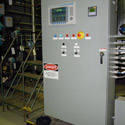
Our client, a university in eastern Canada, operates a 4 boiler plant with a boiler/heat exchanger combination. The boiler, operating at 175 PSIG, generates steam that is used in the heat exchanger to heat up hot water in a closed loop system. This unique hot water distribution network is one of only two similar systems in Canada. The boiler was designed with no feedwater pump and condensate from the heat exchanger goes directly back into the boiler. Bacon Engineering was tasked with replacing ...
Read More -
University Steam Plant Expansion
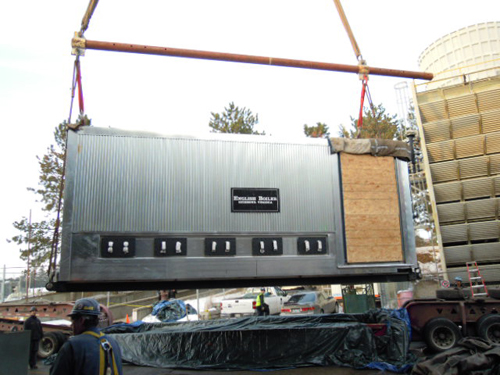
Our client, a university in southern Ontario, was looking to expand their steam plant with the addition of a new industrial steam boiler. The challenge was that the boiler, economizer, and all auxiliary equipment had to be designed to fit into an extremely tight footprint. Bacon Engineering custom designed the boiler to have the exit flue gas come out the top and side of the boiler so that the economizer could be lowered below the top drum of the boiler to coincide with the building's heigh...
Read More -
Industrial Steam Boiler Replacement
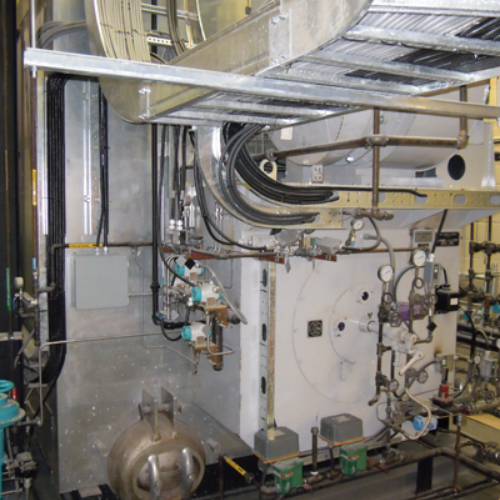
Bacon Engineering won a tender to replace an industrial steam boiler for a well-known brewery in Eastern Canada. Space was limited, which prohibited the installation of a standard boiler. We custom designed the new boiler to fit the small available footprint by positioning both the flue gas output and the economizer at the top of the boiler rather than attached to the side. The 25,000 lb/hr boiler has a Faber low NOx burner and an Allen Bradley metered control system with touch screen. The new...
Read More
Leading the Way in Eco-Friendly Environmental Technology to Reduce Emissions
In a world grappling with the pressing need to reduce emissions and combat climate change, Bacon Engineering stands at the forefront of eco-friendly environmental technology development. With an unwavering commitment to a sustainable future, Bacon Engineering leverages cutting-edge innovations to address the global imperative of emission reduction. Their expertise spans a range of solutions, from renewable energy technologies, such as wind, solar, and hydroelectric systems, to green transportation options like electric and hydrogen fuel cell technologies. They're also pioneering energy efficiency solutions and advanced waste management technologies. Their dedication to research and development, in collaboration with institutions and industry partners, ensures that they stay ahead in the quest for sustainable, low-emission technologies. Bacon Engineering's work is not just about business and innovation; it's about creating a cleaner, healthier planet for current and future generations, embodying the vision of a more sustainable world through the power of technology.
